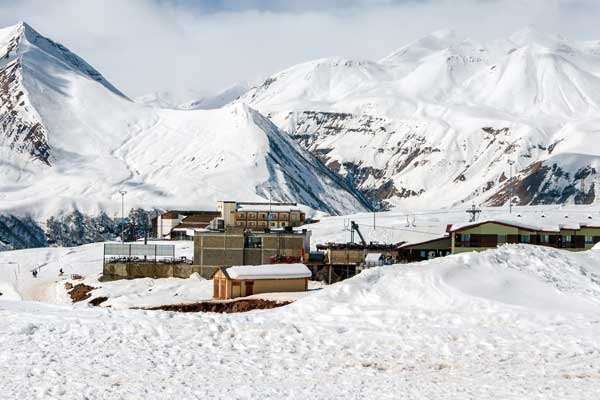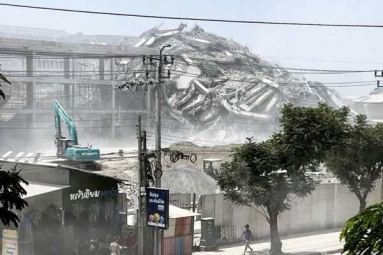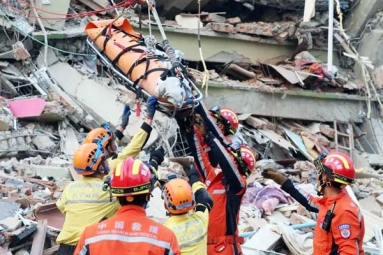What is the poisonous gas that killed 12 Indians at Georgia ski resort?
December 17, 2024 19:54
(Image source from: Canva.com)
Twelve Indian citizens were killed in a tragic accident at the popular ski resort of Gudauri in Georgia. The Indian delegation in the capital Tbilisi said initial reports suggested the deaths were likely due to carbon monoxide poisoning. The Indian Embassy in Tbilisi said it was “committed to providing all possible assistance to the families of those killed during the repatriation of bodies of Indian nationals.” Officials said the bodies of 12 Indians were found in a bedroom above the Haveli restaurant in Godavari, the largest and highest ski resort in the former Soviet region.
This ski resort is located at an altitude of about 2200 meters in the Mtskheta-Mtianeti region of the Caucasus. In the 19th century, it was a trading center on the historic Georgian military road that connected Georgia and Russia. A preliminary investigation found no evidence of violence or injuries, according to a statement from the Georgia Department of the Interior. The Georgia Department of State claimed that 11 of the 12 victims were foreign nationals and one was a citizen. In contrast, Indian investigators claimed that all 12 victims, allegedly employees of an Indian restaurant, were Indian nationals. The Georgia Department of Internal Affairs and Communications said the investigation is "active" and that forensic investigators are working the case and interviewing the people involved. The victim's identity has not yet been released.
Local media quoted police as saying all the victims died of carbon monoxide poisoning. A preliminary inspection revealed that a generator was located in an area of the building near the bedroom. When the power went out in the building on Friday evening, an oil generator kicked in and suffocated the victims. Early theories suggest the death toll could have been caused by noxious fumes from the generator. "The generator was installed in a restricted area near the bedroom and the power outage last night likely led to its deployment," a spokesperson for Georgia's Interior Ministry said, according to The Times of India. The circumstances of this tragic accident remain under investigation and forensic experts are attempting to confirm the exact cause of death.
Police opened an investigation under Section 116 of the Georgia Penal Code, which deals with involuntary manslaughter. The exact cause of death will be determined by the medical examiner. Commonly referred to as the “silent killer,” carbon monoxide is a colorless, odorless, and tasteless gas. Carbon monoxide poisoning occurs when the bloodstream becomes too full of carbon monoxide. This gas displaces oxygen in red blood cells and can cause severe tissue damage and even death. Every year hundreds of people die from this disease and thousands become ill.
The combustion of fuels such as gas, wood, propane and charcoal produces carbon monoxide. If engines and machines are not properly ventilated, especially in enclosed spaces, the gases can reach dangerous levels. For example, it is dangerous to drive your car in the garage or to grill indoors. Carbon monoxide poisoning can also occur from exposure to fire smoke. According to the Economic Times, hookah smoking is also linked to an increase in carbon monoxide poisoning, particularly among young people.
Carbon monoxide poisoning can affect anyone. Infants, the elderly and people with anemia, chronic heart disease or respiratory disease are more susceptible to the disease. Carbon monoxide poisoning is widespread in the United States, and according to the CDC, more than 400 people die each year from accidental poisoning unrelated to fires, more than 100,000 people die in emergency rooms, and more than 14,000 people die as a result each year poisoning in an accident. Non-fire-related poisonings are hospitalized. This type of poisoning mainly affects the heart and brain. Prolonged exposure may cause flu-like symptoms without fever. Other symptoms include headache, weakness, dizziness, nausea or vomiting, shortness of breath, confusion, blurred vision, drowsiness, loss of muscle control, and loss of consciousness.
The elderly and people who lose consciousness are likely to experience symptoms affecting the brain and nervous system after recovering from carbon monoxide poisoning. These symptoms include memory loss, personality changes and movement disorders. This type of poisoning is particularly dangerous for people who are sleeping, drinking, or under the influence of drugs because it can cause death or brain damage before the problem is detected. Install a battery-operated or battery-operated carbon monoxide detector near each bedroom in your home. Changing the clock every winter and spring ensures that the CO detector battery is working properly.
Water heaters, heating systems and other appliances that burn coal, oil or gas should be serviced annually by a certified technician. Check or clean your chimney annually. Debris can clog your chimney and cause carbon dioxide to build up in your home or shed. Charcoal should never be burned indoors. CO is released when burning red, gray, black or white coal. Only purchase gas appliances that bear the National Testing Agency seal. Never operate a generator in your home or garage, even with the windows and doors open. Use the generator outdoors only and at least 20 feet away from windows, doors, and vents.










